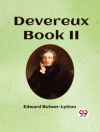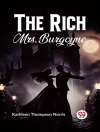Set against the backdrop of the Gordon Riots of 1780, Charles Dickens’ ‘Barnaby Rudge’ masterfully intertwines historical events with deeply human narratives. Dickens employs a rich tapestry of characters, blending humor with pathos, while exploring themes of mob mentality, social injustice, and the everyday struggles of the common man. The novel’s gothic undertones and vivid descriptions of London provide a compelling commentary on the turbulence of the era, making it a significant contribution to the historical novel genre. Charles Dickens, renowned for his keen observations of Victorian society, was heavily influenced by his own experiences with class disparity and social unrest. Having grown up in poverty and faced adversity, Dickens’s empathy for the underprivileged shines through in ‘Barnaby Rudge.’ The characters embody the complexities of human nature, demonstrating how societal pressures can distort morality and incite chaos. The novel reflects his fascination with the intersections of history and storytelling, solidifying his role as a prominent social critic. I highly recommend ‘Barnaby Rudge’ to those who appreciate intricately woven narratives that challenge the status quo. This novel not only provides an enthralling story but also invites readers to ponder the social dynamics that shape our world, making it a timeless piece resonant with contemporary issues.
A propos de l’auteur
Charles Dickens (1812–1870), a literary colossus of the Victorian era, remains a towering figure in the pantheon of English literature. Dickens is renowned for his profound empathy towards the marginalized sectors of society and his acute critique of social stratifications, which are manifest in his richly detailed narrative tapestries. His narratives often weave elements of satire, humor, and pathos to underscore the disparities and injustices prevalent during his time. ‘Barnaby Rudge’ (1841), one of his lesser-known historical novels, delves into the anti-Catholic Gordon Riots of 1780 and stands as a testament to Dickens’s narrative mastery and historical acumen. Like much of his oeuvre, this work showcases Dickens’s skill in creating memorable characters and vividly portraying the chaotic energies of crowd dynamics. Other seminal works that underscore Dickens’s influence on the English literary canon include ‘Oliver Twist’ (1838), ‘A Christmas Carol’ (1843), ‘David Copperfield’ (1850), and ‘Great Expectations’ (1861). His writings not only continue to entertain but also serve as a poignant social commentary on the Victorian society. Dickens’s unique literary style—marked by his characteristic use of caricature, serialization, and cliff-hangers—secured his popularity during his lifetime and has left an indelible mark on literature.












